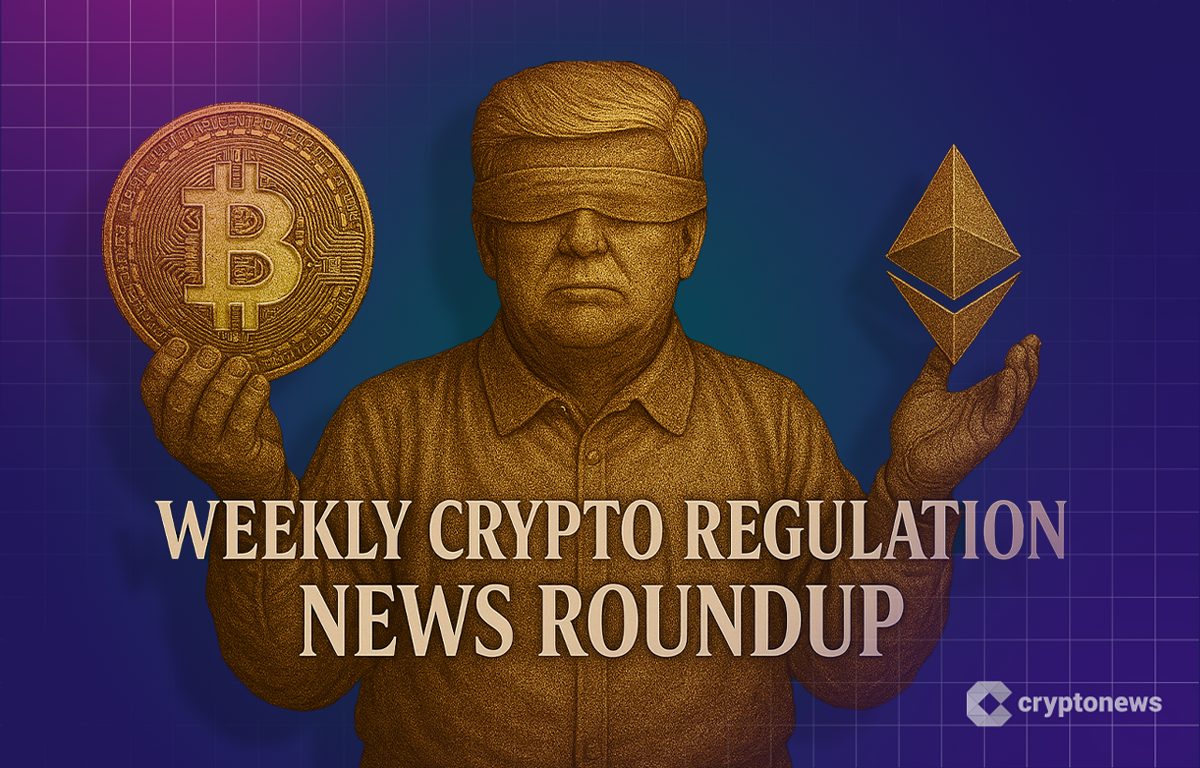Weekly Crypto Regulation News Roundup: Lawmakers Question if Trump Influences SEC, Fed’s CBDC Bill Blocked

This week saw heightened activity in crypto regulation news as political tensions escalated and lawmakers renewed their focus on digital asset policy.
Regulatory developments moved quickly across the digital asset space, with several key actions and proposals reshaping the conversation.
Lawmakers Demand SEC Probe Potential Trump Influence in Crypto Enforcement
One of this week’s most pressing developments came from Capitol Hill, where Sen. Elizabeth Warren and Rep. Maxine Waters called on the Securities and Exchange Commission (SEC) to examine whether political interference tied to Donald Trump’s family was influencing the agency’s crypto enforcement decisions.
In a letter to Acting SEC Chair Mark Uyeda, the lawmakers raised concerns over World Liberty Financial (WLF), a crypto firm allegedly connected to members of Trump’s family.
Warren and Waters requested access to all related internal communications and sought clarification on any enforcement decisions involving WLF.
The letter reflects growing concern among Democrats about possible conflicts of interest and political interference in crypto regulation.
Fed’s Power to Issue a CBDC Faces Setback
In a blow to the Federal Reserve’s digital currency ambitions, the U.S. House Financial Services Committee passed legislation this week designed to prevent the Fed from issuing a CBDC directly to individuals.
Introduced by Majority Whip Tom Emmer (R-MN), the bill passed in a 27–22 vote.
Emmer, a vocal critic of CBDCs, has warned that a government-issued digital dollar could increase government oversight of U.S. citizens’ financial activity.
The vote reflects broader skepticism among Republicans regarding CBDCs and concerns that the technology could expand federal authority over private financial behavior.
Stablecoin Regulation Gains Momentum with STABLE Act
In a separate move, lawmakers advanced the STABLE Act—short for Stablecoin Transparency and Accountability for a Better Ledger Economy—through the House Financial Services Committee in a 32–17 vote.
Sponsored by Rep. French Hill (R-AR) and Rep. Bryan Steil (R-WI), the bill outlines requirements for audits, reserves, and licensing for stablecoin issuers.
The legislation seeks to establish a legal framework for the issuance and regulation of dollar-pegged stablecoins.
The bill marks progress toward formally integrating stablecoins into the U.S. financial system, with bipartisan support boosting its chances of eventually becoming law.
CFTC Withdraws Key Crypto Guidelines in Shift Toward Mainstreaming
The Commodity Futures Trading Commission (CFTC) this week withdrew two staff advisories related to the listing of crypto derivatives products, including Staff Advisory No. 18-14.
The documents had previously set out detailed expectations for market participants, particularly exchanges.
The withdrawal suggests the agency may now view digital assets as mature enough for regulatory treatment similar to traditional asset classes.
Crypto firms will still be subject to oversight, but the shift suggests a more traditional approach may be emerging.
Senate Advances Trump Nominee Paul Atkins to Lead SEC
The Senate Banking Committee narrowly approved Paul Atkins—nominated by former President Donald Trump—to lead the SEC in a 13–11 vote on Thursday.
Atkins previously served as an SEC commissioner from 2002 to 2008 and is known for his deregulatory views.
If confirmed, his leadership could signal a change in how the SEC approaches crypto enforcement, particularly amid concerns over the agency’s aggressive stance in recent years.
U.S. Treasury and Federal Agencies Set to Disclose Crypto Holdings
In line with an executive order issued during the Trump administration, the U.S. Treasury Department and other federal agencies are expected to disclose their cryptocurrency holdings on April 5.
The report is expected to include details on Bitcoin and potentially other assets such as XRP, Solana, and Cardano.
The disclosure is intended to increase transparency around government involvement in crypto and could influence sentiment depending on the asset allocations revealed.
The week’s developments added fresh complexity to ongoing crypto regulation news across Capitol Hill and federal agencies.
Where Crypto Regulation Stands Now
Last week’s events underscored how U.S. crypto regulation news remains driven by shifting political dynamics, institutional tensions, and evolving digital asset frameworks.
With lawmakers investigating Trump-linked firms, CBDC initiatives facing roadblocks, and stablecoin regulation gaining traction, the path forward for digital assets remains unpredictable.
As policy debates continue, crypto businesses and investors will be watching closely—because what happens in Washington no longer stays in Washington.
The post Weekly Crypto Regulation News Roundup: Lawmakers Question if Trump Influences SEC, Fed’s CBDC Bill Blocked appeared first on Cryptonews.



